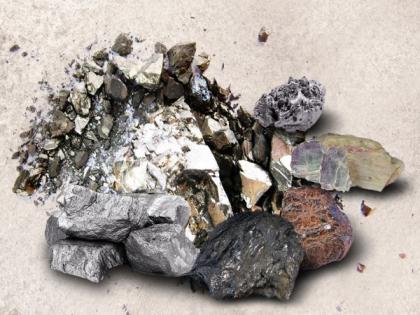India looking to diversify import of rare earth elements, keen on self-reliance in critical minerals
By ANI | Updated: July 15, 2025 19:04 IST2025-07-15T18:56:00+5:302025-07-15T19:04:15+5:30
New Delhi [India], July 15 : India is making efforts to diversify its supply on rare earth materials and ...

India looking to diversify import of rare earth elements, keen on self-reliance in critical minerals
New Delhi [India], July 15 : India is making efforts to diversify its supply on rare earth materials and also establish a robust framework for self-reliance in the critical minerals, which are crucial for the clean energy technology and for electronics sector, sources said.
India is not only looking to expand its cooperation with African nations in critical minerals but also countries in South America. It is actively pursuing free trade agreements (FTAs) with resource-rich nations like Chile and Peru to secure rare earth supplies.
Simultaneously, the government is pushing for the development of indigenous processing technologies to tap into domestic rare earth reserves, aiming to build a more resilient and self-reliant value chain, the sources said.
India has finalised Terms of Reference for negotiating the India-Chile Comprehensive Economic Partnership Agreement (CEPA), which was signed on May 8, 2025.
The next round of negotiations is expected in July/August 2025 and will be preceded by intersessional discussions through virtual conferences to address outstanding issues in advance of the upcoming meeting.
Both countries have recognised the strategic importance of critical minerals for emerging technologies, advanced manufacturing, and clean energy transitions. Both countries have agreed to accelerate collaboration in exploration, mining and processing along with research and development to promote investment across the entire critical mineral value chain for mutual benefit.
They stressed the need for building trusted and resilient supply chains, including for critical minerals and advanced materials.
The two sides agreed to work together on initiatives to strengthen supply chains and local value chains by fostering mutually beneficial partnerships and understandings in mining and minerals, including the possibility of a long-term supply of minerals and materials from Chile to India.
India has also engaged with Peru for Trade Agreement. Peru has emerged as the third-largest trading partner of India in the Latin American & Caribbean Region. In the last two decades, the trade between India and Peru has increased from USD 66 million in 2003 to around USD 3.68 billion in 2023. The trade agreement under negotiation shall play a pivotal role in future collaboration in various sectors, creating avenues for mutual benefit and advancement, sources said.
The central government has earmarked Rs 1,345 crore to incentivise rare earth magnets production in India, aimed at building domestic capacity amid reports of global short supply.
"Some progress is going on (on the rare earth magnet production front). We have already allocated Rs 1,345 crore (for subsidy). We are on course to select the manufacturers," Minister for Heavy Industries HD Kumaraswamy told reporters at a press conference last week.
The move is significant, as China in April this year announced a decision to implement export controls on certain rare earth-related items, pushing a supply shortage across the world, including India.
China's overwhelming control of global rare earth processing - commanding over 90 per cent of the world's magnet production capacity - has created significant vulnerabilities for industries worldwide. These materials are critical across multiple sectors, including automobiles, home appliances, and clean energy systems.
Finance Minister Nirmala Sitharaman announced the setting up of the Critical Mineral Mission in the Union Budget for 2024-25. The Union Cabinet in January 2025 approved the launch of the National Critical Mineral Mission (NCMM) with an expenditure of Rs 16,300 crore and an expected investment of Rs 18,000 crore by Public Sector Undertakings.
NCMM has been launched to establish a robust framework for self-reliance in the critical mineral sector.
Under this mission, the Geological Survey of India (GSI) has been tasked with conducting 1,200 exploration projects from 2024-25 to 2030-31.
Disclaimer: This post has been auto-published from an agency feed without any modifications to the text and has not been reviewed by an editor
Open in app